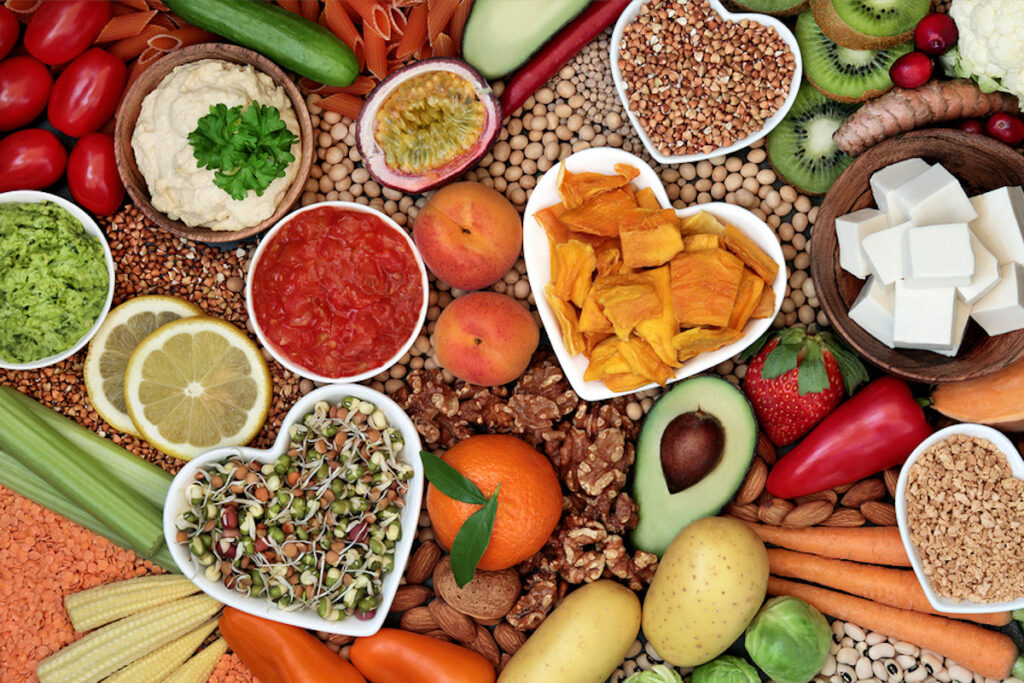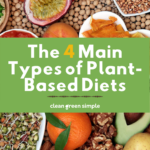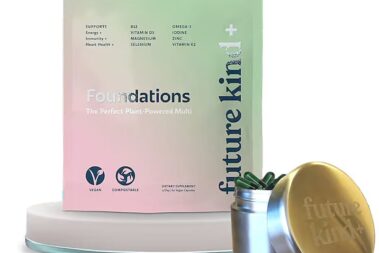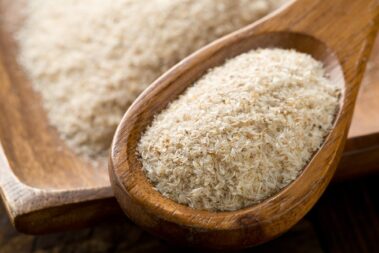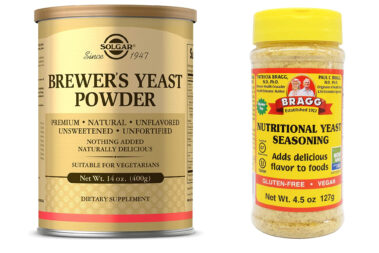It’s nearly impossible to find a diet that healthcare practitioners, social media influencers, celebrities, Netflix documentaries, and your parents can all agree upon as a healthy choice. Thus, it’s no surprise that the buzz about plant-based diets has been gaining so much media attention.
But what exactly IS a plant-based diet?
There’s currently no official or formal definition of the term, but most nutrition experts agree that a plant-based diet is any type of eating plan that primarily consists of foods sourced from plants with few—if any—foods sourced from animals or insects.
Because the working definition is fairly open ended, plant-based diets can look very different depending on who is following it. Some people may choose to exclude all types of animal products, while others may opt to include them sparingly, or only restrict certain kinds.
To break it down a little more, this article will review the 4 main types of plant-based diets, popular variations of each, and whether it’s a good idea to consider adopting a plant-based diet for yourself.
Table of Contents
1. Vegan
A vegan diet is a type of plant-based diet that excludes all types of foods that contain animal products and animal byproducts including meat, fish, dairy, and eggs.
People choose to follow a vegan diet for many reasons including health benefits, animal welfare concerns, and environmental issues.
Vegan diets are among the most restrictive forms of plant-based diets and they’re often accompanied by other related lifestyle choices such as abstinence from using non-food animal products like leather or wool.
Examples of foods permitted on a vegan diet:
- Fruit: all types
- Vegetables: all types of starchy and non-starchy options
- Grains: all types, prepared without animal fats
- Nuts and seeds: all types
- Legumes: all types
- Fats/Oils: coconut oil, olive oil, avocado oil, vegetable oil, walnut oil, sesame oil, etc.
- Herbs and spices: all types
Examples of foods prohibited on a vegan diet:
- Meat: poultry, fish, seafood, beef, lamb, pork, meat-based broths and sauces
- Dairy: milk, cheese, yogurt, ceam, butter, ice cream, whey, casein, lactose
- Eggs: all types
- Fats/Oils: lard, tallow, fish oil, butter, mayonnaise
- Other: honey, fish sauce, gelatin, bee pollen, most vitamin D3 supplements, certain food additives and colorings
The term “vegan” is often used as a synonym for plant-based, but the plant-based vs vegan war rages on. There’s entirely too much nuance in the world of plant-based diets to be able to describe them all with just one word.
Even dietary patterns that fall within the vegan category can differ from one another. For instance, some people follow what is dubbed a “whole-foods, plant-based diet.” This is a particular type of vegan diet that emphasizes whole, minimally processed plant foods and excludes the more processed options like refined grains, sugars, and vegetable oils.
Because of the restrictive nature of vegan diets, it can be difficult for some people to obtain adequate amounts of certain nutrients, such as vitamin B12 or iron.
Thus, in addition to a well-planned diet, a combination of nutritional supplements and fortified foods may be required to ensure you’re meeting all of your daily nutrition needs.
2. Vegetarian
A vegetarian diet is a popular form of a plant-based diet which tends to be considerably less restrictive than a vegan diet.
All types of vegetarian diets allow the same foods permitted on a vegan diet and exclude all types of meat, fish, and seafood. But depending on the specific type, a vegetarian diet may allow other kinds of animal products such as dairy and eggs.
Because vegetarian diets tend to be fairly flexible and usually include a wide variety of foods from all food groups, the use of nutritional supplements and fortified foods may not be required to meet your daily nutrient needs.
However, this will always be unique to the individual and in many cases depends on the diversity of the food choices made within your chosen dietary pattern.
Vegetarian diets usually fall under three main categories:
Lacto-ovo Vegetarian
A lacto-ovo vegetarian diet is one that excludes meat, but still allows all types of dairy (lacto) products and eggs (ovo). This type of vegetarian diet is often colloquially referred to as simply “vegetarian.”
The most common reason people choose this type of diet is for health reasons, but the decision may also be made due to environmental and humanitarian concerns, or simply as a matter of personal preference.
Ovo Vegetarian
An ovo-vegetarian diet is a vegetarian diet that includes eggs (ovo), but prohibits all dairy products including milk, cheese, cream, ice cream, yogurt, and butter.
Someone may choose to follow this type of diet if they have allergies or intolerances to dairy, if they simply don’t like the taste of dairy foods, or for ethical animal welfare or environmental reasons.
Lacto Vegetarian
A lacto-vegetarian diet is a vegetarian diet that includes dairy products (lacto), but excludes all types of eggs and foods that include eggs including whole eggs, egg whites, mayonnaise, and baked goods that contain eggs.
There are a number of reasons why someone may choose this particular type of vegetarian diet including egg allergies and intolerances, a personal aversion to eggs and egg-based products, or other types of environmental or animal welfare concerns.
3. Pescatarian
A pescatarian diet is a type of plant-based diet that is often grouped together with vegetarian diets because it excludes all types of meat except for fish, shellfish, and seafood.
But like all of the other types of plant-based diets, a pescatarian diet is still primarily based on plant-derived foods. Many pescatarians also eat dairy products and eggs, but some do not. Technically, a person who consumes eggs, dairy, and fish would be following a lacto-ovo pescatarian diet. However, you’re more likely to hear variations of pescatarian diets all lumped into the same general “pescatarian” category.
Many people follow a pescatarian diet to boost their intake of high quality protein or heart-healthy omega-3 fats, while others choose it for animal welfare, humanitarian, or environmental sustainability reasons.
If you follow a pescatarian diet, it’s important to be mindful of your potential exposure to fish and seafood that may be contaminated with heavy metals.
Large, predatory fish that are higher on the food chain have an increased likelihood of bioaccumulating neurotoxins like mercury, which can cause negative health outcomes if you consume too much (1).
Because of this potential risk, it’s a good idea to consume a variety of different types of fish and limit your consumption of high-mercury fish and seafood varieties like tuna, swordfish, marlin, escolar, and shark (1).
Salmon, sardines, arctic char, herring, mackerel, and rainbow trout are all species that tend to be lower in mercury and are considered safer options. You can also further minimize risk by choosing fish and seafood that have been sustainably raised and caught (1).
Children and women who are pregnant or trying to become pregnant are at an increased risk for negative health effects related to mercury consumption and should limit their consumption of fish to 12 ounces per week (2).
A well-planned and balanced pescatarian diet can provide all of the essential nutrients your body needs without the use of supplements or fortified foods. However—as with any other kind of diet—this is unique to the individual and the food choices they make while following said diet.
4. Flexitarian (semi-vegetarian)
As the name implies, a flexitarian diet is the most flexible of all of the main types of plant-based diets. Sometimes referred to as a semi-vegetarian diet, a flexitarian diet doesn’t actually prohibit any type of animal-based foods at all. Although the foundation of flexitarian diet is built on plants, small amounts of meat, fish, eggs, and dairy can be included as desired.
At the start of the year several media outlets predicted that the flexitarian diet will be one of the top diet trends of 2020, which probably doesn’t come as much of a surprise to most people.
It’s easy to see why a flexitarian diet may be particularly appealing, especially for people who are already considering a transition to a more plant-forward diet but aren’t quite ready to take the leap into full veganism.
Flexitarian diets come with many of the same benefits as other types of plant-based diets, but without the rigid rules that accompany many of them.
Some people actually use a flexitarian diet as a way to “ease into” a more restrictive type of plant-based diet—such as vegan or vegetarian—while others simply use it to maximize their nutrient intake from plants while still being able to occasionally enjoy animal-based foods when they prefer.
In fact, many people may already be following a flexitarian diet without even knowing it.
Should You Consider Adopting a Plant-Based Diet?
Food is an integral part of the human experience and a person’s dietary patterns and choices may be influenced by numerous factors including family history, cultural background, taste preferences, personal ethics, lifestyle, nutrition needs, and health goals. All of these elements should be considered when you’re deciding which type of diet is best for you.
That said, when it comes to nutrition and health, there are few diets that offer more benefits than one that is plant-based. Just about anyone can stand to benefit from eating more fruits and vegetables.
In fact, research suggests people who consume more whole, plant-based foods tend to consume a wider variety of essential nutrients and fiber, maintain a healthier weight, and have a reduced risk for developing chronic diseases such as diabetes, heart disease, and cancer. Recent scientific evidence also supports the use of a plant-based diet to promote brain and mental health (3, 4, 5).
However, like all matters in nutrition, nothing is black and white.
Inclusion of small to moderate amounts of animal products in your diet will not undo the numerous benefits of building your dietary foundation upon whole, plant-based foods. This is why any of the previously discussed styles of plant-based diets can still have significant health benefits.
What’s more, just because a food is plant-based doesn’t automatically make it a nutritious choice. Plenty of ultra-processed foods such as refined grains, sugars, and oils are technically plant-based, but that doesn’t mean they will have the same benefits as those that are minimally processed.
After all, Oreos and french fries are both plant-based.
A large observational study published in 2017 compared the effects of two types of plant-based diets: one that consisted mainly of whole foods, and one that emphasized ultra-processed foods. Results revealed a significant reduction in heart disease risk for the group that consumed a larger proportion of their diet from whole foods, whereas the group that consumed more of the less nutritious foods had a significant increase in their risk for developing heart disease (6).
Thus, the quality of the foods you choose—within the context of your overall dietary pattern—is going to have a much bigger impact on your health than whether they come from plants or animals.
A well-planned diet that emphasizes fruits, vegetables, whole grains, legumes, nuts, seeds, and healthy plant-based fats is where your focus should be. Whether it manifests as a vegan, vegetarian, pescatarian, or flexitarian eating pattern is completely up to you.
The Bottom Line
Any dietary pattern that is primarily made up of foods that are sourced from plants is considered a plant-based diet.
The main types of plant-based diets are vegan, vegetarian, pescatarian, and flexitarian (semi-vegetarian), but any variation of these dietary patterns fits the plant-based bill.
Some people prefer not to consume animal products at all, while others may include them sparingly.
Regardless of which type of diet you choose, including plenty of whole, plant-based foods on your plate is a great way to support optimal health.
Feature photo: ©marilyna/Bigstock
- 7 Best Vegan Prenatal Vitamins for a Healthy Pregnancy - November 10, 2020
- 10 Plant-Based Foods that Support a Healthy Immune System - March 25, 2020
- The 4 Main Types of Plant-Based Diets - February 21, 2020

